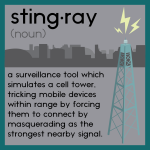Mark Wahlberg is already a famous movie star, but now he wants to expand that star power into the restaurant business.
The problem? He can’t get the required licenses to open up shop.
Why? Because when he was a teenager, he was involved in more than a few instances of criminal behavior, including assault and battery in several racially-charged attacks. He pleaded guilty and served time in prison.
Since then, Wahlberg says he has turned his life around. He says he was a teenager when this happened and that he’s grown up, and shouldn’t be punished for something he wouldn’t dream of doing today. He’s outlined his charitable work and says he’s no longer the kid who had dozens of run-ins with the Boston Police Department.
Wahlberg says he’s a model citizen and hopes that Massachusetts sees it the same way. He’s asked for a formal pardon for his crimes.
Wahlberg may be a household name, but his situation is far from one known by just the rich and famous. Across the country, adults are being limited by crimes they committed as children. The difference is they don’t have the high-powered attorneys or headline-grabbing names that can get their issues to the front of their governor.
Some may argue that people should pay for their crimes. There’s no disagreement there. But should adults who committed crimes as children really be blocked from getting a student loan, or some assistance with housing or a job -- simply because they did something stupid as a teen? Especially with the racial disparity in the criminal justice system, people of color who have "paid" for their "youthful indiscretions" may pay for them repeatedly through lost opportunities.
There should be a punishment for a crime, but we should make sure that punishment fits the crime. Too often, it does not.
People change. Kids will do things they will regret as adults. They should get the opportunity to live their lives once they’ve paid for their crimes, and it shouldn’t take star power to get this accomplished. This is why the ACLU of Illinois supports making it easier -- even automatic -- for some criminal records to be expunged, especially if the person does not get in any further trouble.
If it is good enough for Marky Mark, it should be good enough for all.

